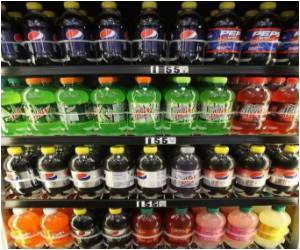
"A lot of people are very sensitive to bitter taste in medicines, calorie-free sweeteners, and foods," said Ioana Ungureanu.
"We'd like to be able to make their diets more enjoyable by masking the off-putting flavors of bitterness. Blocking these flavors we call off-notes could help consumers eat healthier and more varied diets. It could encourage them to switch to non-calorie soft drinks and help children and seniors swallow bitter-tasting medications."
Ungureanu, a research scientist with Givaudan Flavors Corporation in Cincinnati, Ohio noted, for instance, that green, leafy vegetables like spinach and broccoli are excellent sources of calcium and other nutrients important for good health.
But calcium, magnesium, zinc and other key minerals and vitamins in nutritious foods unfortunately have a taste that people find unpleasantly bitter. Though it is unlikely that the bitterness of these fresh vegetables will be masked any time soon, there are many other food and beverage products that are becoming much more palatable.
Taste cells with specific receptors blanket the tongue. Scientists have identified 27 receptors for different shades of bitterness, which along with salty, sweet, sour and savory (or umami), make up the human taste palate. The new bitterness blocker, known only at this point as GIV3616, works by blocking some of the bitterness receptors.
Advertisement
But Givaudan scientists immediately realized that it could be used as the model for developing blockers for other taste receptors, including substances that might make liquid medicines or bitter foods more palatable.
Advertisement
"It works at levels on the order of parts per million and blocks flavors using 10 times less material than what was needed previously."
The work has been reported at the 241st National Meeting and Exposition of the American Chemical Society.
Source-ANI









